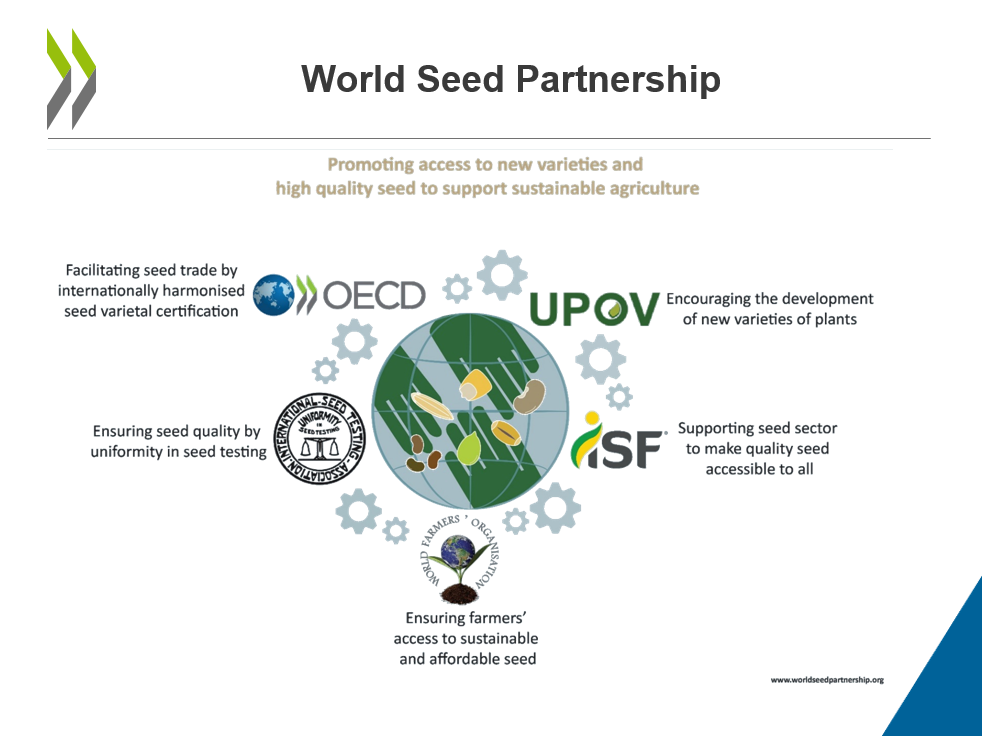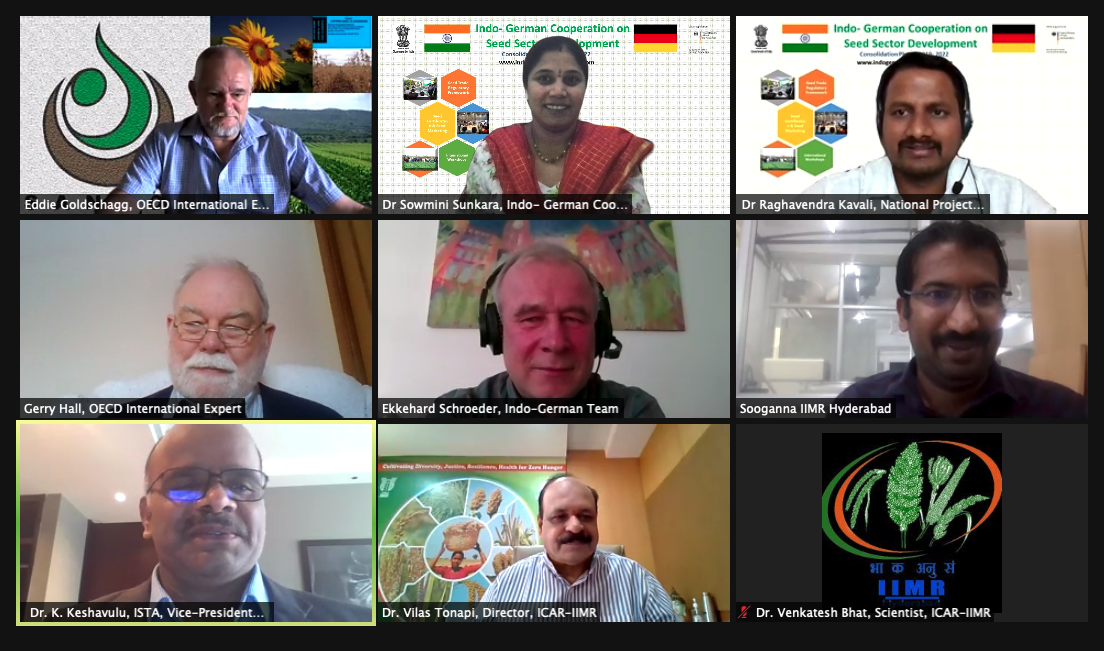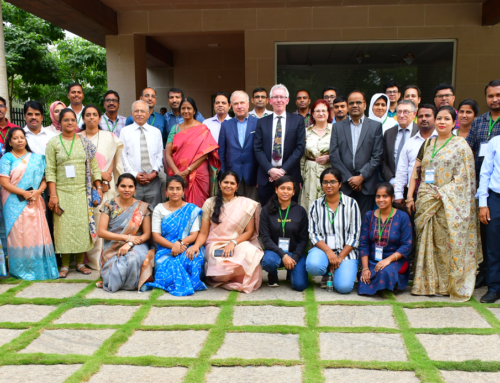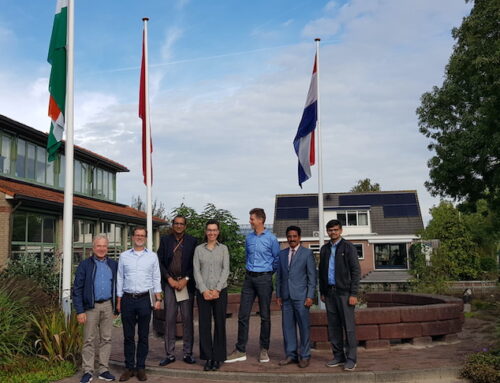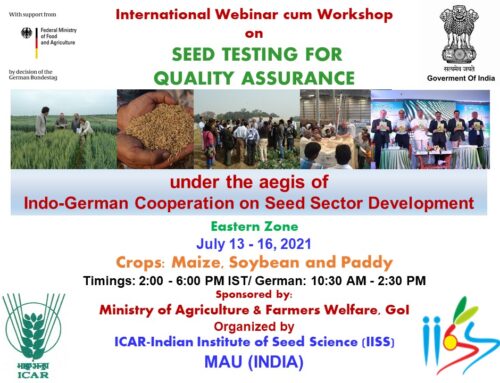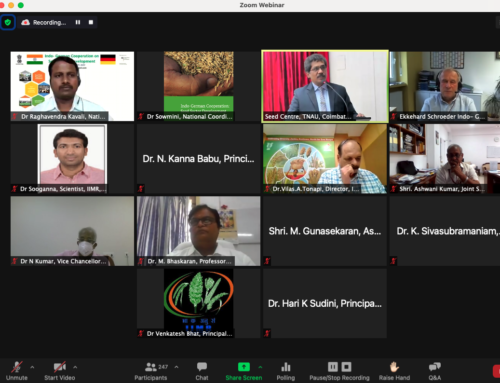In the frame of the project “Indo-German Cooperation on Seed Sector Development”, a five-day webinar on OECD Seed Certification was successfully conducted between February 08th – 12th, 2021 in cooperation with DAC&FW, Ministry of Agriculture and Farmers Welfare, Govt. of India and the Indian Council of Agriculture (ICAR) – Indian Agricultural Research Institute (IARI), New Delhi and Indian Institute of Millet Research (IIMR), Hyderabad. During this capacity building program, the most important seed crops of the Northern Zone (Wheat, Barley & Mustard) and Southern Zone (Maize, Sorghum & Pearl Millet) were selected for the crop specific training part.
The OECD Seed Schemes provide an international framework for the certification of agriculture seed moving in international trade. The OECD Seed Scheme prescribes a set of procedures, methods and techniques for monitoring quality seed supply which assures for maintenance and safeguarding of the varietal identity as well as purity. It provides legal framework for the certification of the crop seeds moving in International trade(www.oecd.org/agriculture/seeds).
India is intending to boost its seed export to other countries of the world. Therefore, capacity building on OECD Seed Certification is important concern of the Government of India and the Indian seed industry. The implementation of international standards on seed certification can help also to improve seed quality in general in India.
The aim of the webinar was to exchange knowledge, experiences & views between experts of India and International OECD experts on various topics related to the OECD Seed Certification Schemes. More than 165 Officials from Seed Department of DAC & FW, MoA, GoI, Officials of State Department of Agriculture, National Seed Corporation, State Seed Corporation, Private Seed Industry associations (NSAI & FSII), ICAR institutes, SAU’s, OECD Designated Authorities and Seed Certification agencies etc. of both the Northern & Southern Zones have attended this webinar.
A team of well experienced national and international experts/trainers from public and private sector covered various topics during this webinar which include:
- Overview of national and OECD seed certification systems;
- Status of Implementation of National & OECD Seed Certification Systems in India;
- The Role of International Organisations like ISF, IPPC, UPOV, ISTA, OECD in the Global Seed Trade;
- OECD Seed Schemes Rules and Regulations: Part I & Part II;
- Eligibility criteria and acceptance of varieties – DUS & VCU testing procedures in the context of OECD Seed Certification;
- Overview on Seed Sampling;
- Authorization of Inspectors, samplers & seed testing laboratories;
- Rules and Guidelines for Multiplication Abroad, Post-Control general, Planning and management of control plots, listing of varieties and or hybrids;
- The OECD Scheme for Cereal Seed, Maize, Sorghum Pearlmillet Seed, Crucifer and Other Oil or Fibre Species;
- Registration of seed production fields, general crop and field requirements,
- Field Inspections, inspection reports & Varietal Descriptors –Sorghum, Pearlmillet, Maize, Wheat, Barley & Mustard;
- Labelling 1 – Colour coding, examples of OECD Labels, required information on labels and OECD Varietal Certificates;
- Labelling 2 – Supply of Certification Label & Seed Certification Labelling systems in India vs OECD Seed Schemes.
As international OECD Experts Eddie Goldschagg from South Africa and Gerry Hall from UK had been key trainers. All speakers from India and abroad provided excellent presentations and information on the topics above. Many other participants actively participated and contributed to fruitful discussions during Q & A Sessions on all the five days.


